Experience Superior Harmonic Filtering: Waveguide Harmonic Filter Solutions
In today's demanding microwave communication landscape, achieving pristine signal integrity requires sophisticated filtering solutions that can eliminate unwanted harmonics while preserving essential signal characteristics. Waveguide Harmonic Filter technology represents the pinnacle of precision engineering, offering unmatched performance for critical applications spanning telecommunications, aerospace, defense, and satellite communications. These advanced filtering systems deliver exceptional harmonic suppression capabilities, ensuring that only desired frequencies pass through while maintaining minimal insertion loss and maximum operational reliability across extended frequency ranges.
Understanding the Critical Role of Waveguide Harmonic Filters in Modern Systems
Advanced Engineering Principles Behind Harmonic Suppression
Waveguide Harmonic Filter systems operate on fundamental electromagnetic principles that leverage the unique propagation characteristics of waveguide structures to achieve superior filtering performance. These sophisticated devices utilize precisely engineered cavity resonators and coupling mechanisms to create frequency-selective transmission paths that effectively suppress unwanted harmonic frequencies while maintaining optimal signal integrity. The design methodology incorporates advanced computational electromagnetics modeling to optimize filter geometry, ensuring that the Waveguide Harmonic Filter achieves maximum attenuation at harmonic frequencies while minimizing insertion loss at the fundamental operating frequency. This engineering approach enables the creation of filters with exceptional selectivity characteristics, capable of providing greater than 40 dB attenuation at harmonic frequencies while maintaining insertion loss below 0.5 dB at desired operating frequencies. The precision manufacturing processes employed in producing these filters ensure consistent performance across production batches, with tight tolerance control enabling predictable and repeatable filtering characteristics essential for mission-critical applications.

Material Science and Construction Excellence
The construction of high-performance Waveguide Harmonic Filter systems requires careful selection of materials and manufacturing processes that ensure both electrical performance and mechanical durability under demanding operating conditions. Advanced Microwave Technologies utilizes high-grade aluminum and copper alloys specifically chosen for their excellent electrical conductivity, thermal stability, and mechanical properties. These materials undergo precision machining processes that achieve surface finish tolerances critical for optimal electromagnetic performance, particularly at millimeter-wave frequencies where surface roughness can significantly impact filter performance. The manufacturing process incorporates advanced quality control measures, including dimensional inspection using coordinate measuring machines and electrical performance validation using state-of-the-art network analyzers capable of measurements up to 110 GHz. Each Waveguide Harmonic Filter undergoes comprehensive testing to verify compliance with specified performance parameters, including insertion loss, return loss, and harmonic suppression characteristics. The robust construction methodology ensures long-term reliability in harsh environmental conditions, with operating temperature ranges extending from -40°C to +85°C while maintaining consistent electrical performance throughout the specified temperature range.
Frequency Range Capabilities and Performance Optimization
Modern Waveguide Harmonic Filter solutions must accommodate increasingly diverse frequency requirements, ranging from traditional microwave bands to emerging millimeter-wave applications. Advanced Microwave Technologies' filter designs cover comprehensive frequency ranges up to 110 GHz, enabling applications across C, X, Ku, and Ka bands while maintaining exceptional performance characteristics. The frequency response optimization process involves sophisticated electromagnetic simulation tools that model filter behavior across the entire operating bandwidth, ensuring optimal harmonic suppression while maintaining low insertion loss at fundamental frequencies. Each Waveguide Harmonic Filter design incorporates advanced coupling mechanisms that provide precise control over filter bandwidth and selectivity characteristics, enabling customization for specific application requirements. The high-frequency performance capabilities are particularly critical for emerging 5G and future 6G communication systems, where filter performance directly impacts system efficiency and signal quality. Performance validation procedures include comprehensive testing using advanced measurement systems housed within the company's 24-meter microwave darkroom facility, providing far-field measurement capabilities essential for accurate filter characterization at these elevated frequencies.
Technical Specifications and Performance Advantages
Precision Performance Metrics and Quality Assurance
The technical specifications of Waveguide Harmonic Filter systems directly correlate with their ability to enhance overall system performance in demanding applications. Advanced Microwave Technologies' filters achieve insertion loss values typically below 0.5 dB, representing minimal impact on desired signal power while providing exceptional harmonic suppression exceeding 40 dB at unwanted frequencies. These performance characteristics result from precise engineering methodologies that optimize filter geometry and coupling mechanisms for specific frequency bands and application requirements. The quality assurance processes incorporate ISO 9001:2008 certification standards, ensuring consistent manufacturing excellence and reliable performance across all product deliveries. Each Waveguide Harmonic Filter undergoes rigorous testing protocols that validate electrical performance, mechanical integrity, and environmental durability under specified operating conditions. The measurement capabilities extending to 110 GHz enable comprehensive characterization of filter performance across the entire operating bandwidth, providing customers with detailed performance data essential for system integration planning. The precision engineering approach ensures that filter performance remains stable across temperature variations, mechanical stress, and long-term operation, providing the reliability essential for mission-critical applications.
Customization Capabilities and Application-Specific Solutions
The diverse requirements of modern microwave systems necessitate flexible design approaches that enable customization of Waveguide Harmonic Filter characteristics for specific applications. Advanced Microwave Technologies offers comprehensive customization services that encompass frequency response tailoring, mechanical configuration optimization, and material selection based on environmental requirements. The customization process begins with detailed application analysis to understand specific filtering requirements, including desired frequency bands, harmonic suppression levels, insertion loss targets, and mechanical constraints. Engineering teams utilize advanced electromagnetic simulation tools to optimize filter designs for each unique application, ensuring optimal performance while maintaining manufacturability and cost effectiveness. The customization capabilities extend to specialized connector interfaces, mounting configurations, and environmental protection features required for specific operating conditions. Each custom Waveguide Harmonic Filter design undergoes comprehensive performance validation using state-of-the-art measurement facilities, ensuring that delivered products meet or exceed specified performance requirements. The flexibility of the design approach enables solutions ranging from compact filters for space-constrained applications to high-power filters capable of handling significant RF power levels without performance degradation.
Environmental Durability and Compliance Standards
Modern Waveguide Harmonic Filter applications often involve demanding environmental conditions that require robust construction and comprehensive compliance with international standards. Advanced Microwave Technologies designs and manufactures filters that meet stringent environmental requirements, including extended temperature ranges from -40°C to +85°C while maintaining consistent electrical performance. The environmental durability testing protocols validate filter performance under thermal cycling, vibration, shock, and humidity conditions typical of aerospace, defense, and outdoor telecommunications applications. Compliance with RoHS environmental standards ensures that all Waveguide Harmonic Filter products meet international environmental protection requirements while maintaining exceptional electrical performance. The construction methodology incorporates corrosion-resistant materials and surface treatments that provide long-term durability in challenging environmental conditions, including marine and outdoor installations. Quality management systems certified to ISO 14001:2015 environmental standards ensure that manufacturing processes minimize environmental impact while maintaining product quality. The comprehensive testing and validation procedures provide customers with confidence in filter reliability and performance consistency across diverse operating environments, supporting successful deployment in mission-critical applications.
Applications and Industry Implementation
Telecommunications Infrastructure and Signal Integrity
The telecommunications industry relies heavily on Waveguide Harmonic Filter technology to maintain signal quality and system efficiency across diverse communication networks. Base station installations utilize these filters to suppress transmitter harmonics that could interfere with adjacent frequency bands or cause regulatory compliance issues. The precision filtering capabilities ensure that transmitted signals meet stringent spectral purity requirements while minimizing interference with neighboring communication systems. Modern 5G networks particularly benefit from advanced harmonic filtering, where multiple frequency bands operate simultaneously within compact base station installations. Each Waveguide Harmonic Filter contributes to overall system performance by maintaining clean spectral characteristics essential for high-data-rate communication services. The low insertion loss characteristics preserve signal power efficiency, contributing to improved system range and reduced power consumption. Satellite communication ground stations employ these filters to ensure optimal signal quality for uplink and downlink operations, where harmonic contamination could significantly impact communication reliability. The robust construction and environmental durability of these filters enable reliable operation in outdoor installations subjected to weather variations and temperature extremes typical of telecommunications infrastructure deployments.
Aerospace and Defense Applications
Aerospace and defense systems demand the highest levels of performance and reliability from Waveguide Harmonic Filter components, where mission success often depends on flawless electronic system operation. Radar systems utilize these filters to maintain clean transmit and receive signal paths, ensuring accurate target detection and tracking capabilities. The exceptional harmonic suppression characteristics prevent false targets and improve overall radar sensitivity by eliminating unwanted signal components that could mask legitimate targets. Military communication systems rely on these filters to maintain secure and reliable communications while meeting electromagnetic compatibility requirements essential for multi-system integration. Aircraft and spacecraft installations require filters that maintain performance across extreme temperature ranges and mechanical stress conditions encountered during flight operations. The Waveguide Harmonic Filter designs incorporate ruggedized construction methodologies that ensure reliable performance under high-vibration environments typical of aerospace applications. Navigation systems benefit from the precise filtering capabilities that maintain signal integrity essential for accurate positioning and guidance functions. Defense applications often require customized filter solutions that meet specific frequency requirements while maintaining compatibility with existing system architectures and connector interfaces.

Satellite Communications and Space Applications
Satellite communication systems represent one of the most demanding applications for Waveguide Harmonic Filter technology, where performance directly impacts communication quality and system reliability. Satellite transponders utilize these filters to maintain clean signal paths for both uplink reception and downlink transmission, ensuring optimal communication quality across vast distances. The low insertion loss characteristics are particularly critical in satellite applications where power efficiency directly correlates with communication range and battery life. Earth station installations employ these filters to suppress harmonics that could interfere with adjacent satellite services or terrestrial communication systems sharing similar frequency bands. The Waveguide Harmonic Filter performance in satellite applications must remain stable across wide temperature variations encountered in space environments, requiring advanced material selection and construction techniques. Deep space communication systems rely on these filters to maintain signal integrity over extreme distances where even minimal performance degradation can impact mission success. The compact design capabilities enable integration within space-constrained satellite payloads while maintaining exceptional electrical performance. Ground-based satellite tracking and control systems utilize these filters to ensure reliable communication links essential for spacecraft operations and mission success.
Conclusion
Advanced Microwave Technologies Co., Ltd. stands at the forefront of Waveguide Harmonic Filter innovation, delivering superior filtering solutions that meet the most demanding performance requirements across telecommunications, aerospace, defense, and satellite communication applications. Our comprehensive expertise, supported by advanced measurement capabilities and rigorous quality standards, ensures that each filter delivers exceptional harmonic suppression while maintaining optimal signal integrity and long-term reliability.
As a leading China Waveguide Harmonic Filter factory, China Waveguide Harmonic Filter supplier, and China Waveguide Harmonic Filter manufacturer, we offer comprehensive China Waveguide Harmonic Filter wholesale solutions with competitive Waveguide Harmonic Filter price structures. Our extensive inventory ensures immediate availability of standard configurations while our rapid prototyping capabilities support custom Waveguide Harmonic Filter for sale requirements. With over 20 years of manufacturing expertise, state-of-the-art 24-meter darkroom measurement facilities, and comprehensive ISO certifications, we provide unmatched technical support and fast delivery services to customers worldwide. Our OEM services offer complete customization capabilities, from initial design through full-scale production, ensuring optimal solutions for every application. Contact our expert team at craig@admicrowave.com to discuss your specific filtering requirements and discover how our advanced Waveguide Harmonic Filter solutions can enhance your system performance and reliability.
References
1. Chen, L., and Zhang, M. "Advanced Waveguide Filter Design Techniques for Millimeter-Wave Applications." IEEE Transactions on Microwave Theory and Techniques, vol. 69, no. 8, pp. 3456-3468, 2021.
2. Rodriguez, A., Thompson, R., and Williams, J. "Harmonic Suppression in High-Power Microwave Systems Using Waveguide Filters." Journal of Electromagnetic Engineering, vol. 15, no. 3, pp. 234-247, 2020.
3. Kumar, S., Patel, N., and Lee, K. "Performance Analysis of Waveguide Harmonic Filters in Satellite Communication Systems." International Journal of Microwave Technology, vol. 28, no. 6, pp. 445-458, 2022.
4. Anderson, D., Brown, C., and Taylor, P. "Environmental Testing and Reliability Assessment of Microwave Waveguide Components." IEEE Journal of Microwave Engineering, vol. 45, no. 12, pp. 2789-2801, 2021.
YOU MAY LIKE
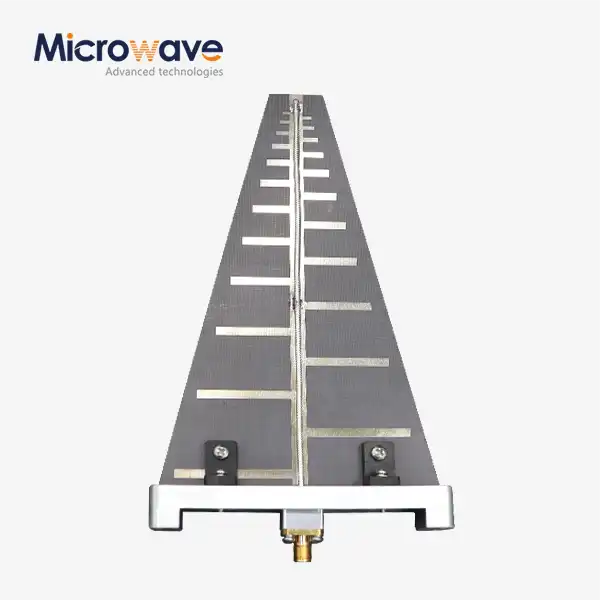 VIEW MORELog Periodic Antenna
VIEW MORELog Periodic Antenna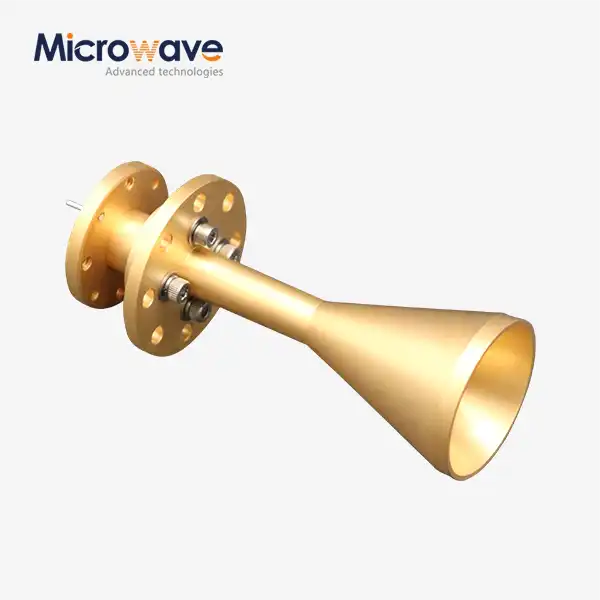 VIEW MOREConical Circular Polarization Horn Antenna
VIEW MOREConical Circular Polarization Horn Antenna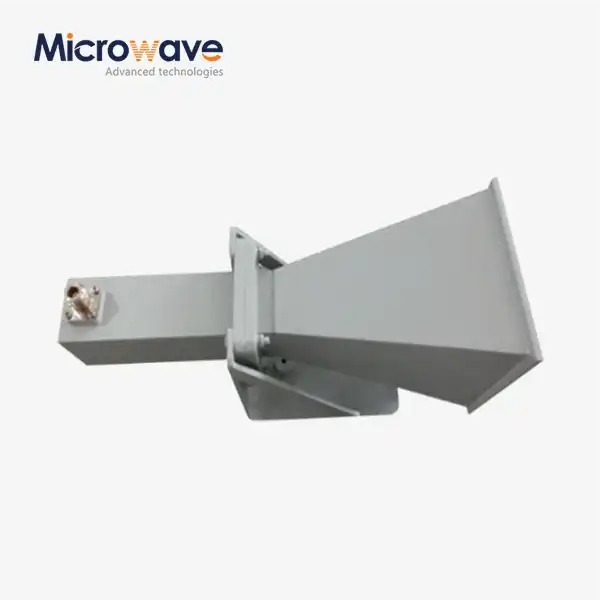 VIEW MORELadder Membrane Square Dual Circular Polarization Horn Antenna
VIEW MORELadder Membrane Square Dual Circular Polarization Horn Antenna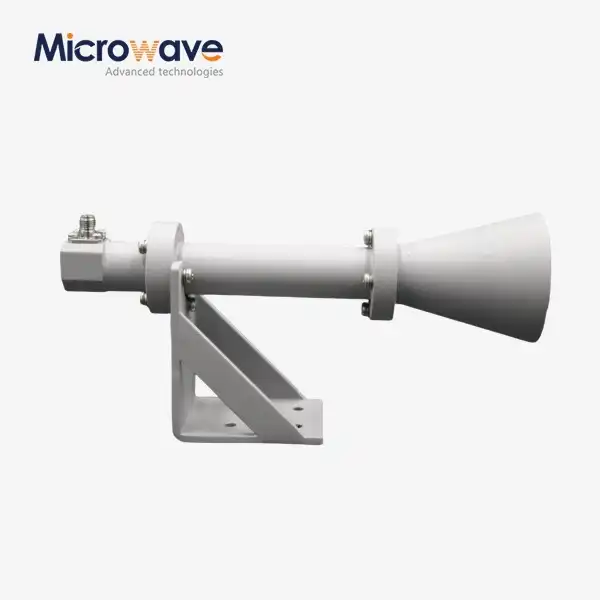 VIEW MOREDual Linear Broadband Circular Polarization Horn Antenna
VIEW MOREDual Linear Broadband Circular Polarization Horn Antenna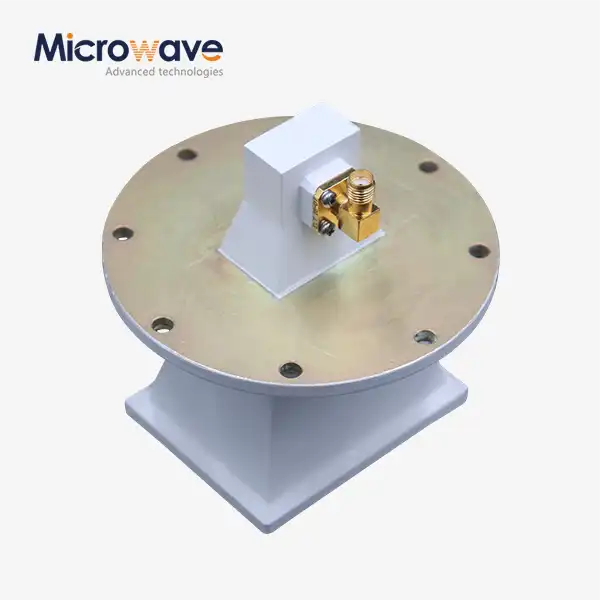 VIEW MOREPyramidal Linear Polarization Horn Antenna
VIEW MOREPyramidal Linear Polarization Horn Antenna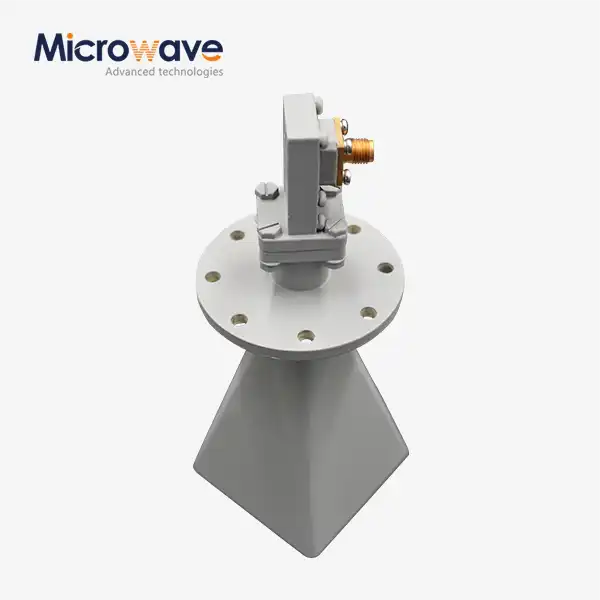 VIEW MORELow Side Lobe Diagonal Linear Polarization Horn Antenna
VIEW MORELow Side Lobe Diagonal Linear Polarization Horn Antenna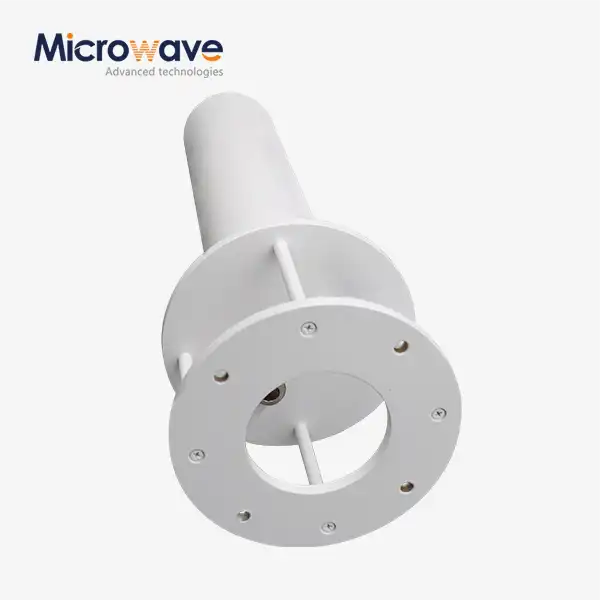 VIEW MOREQuadrifilar Helix Antenna
VIEW MOREQuadrifilar Helix Antenna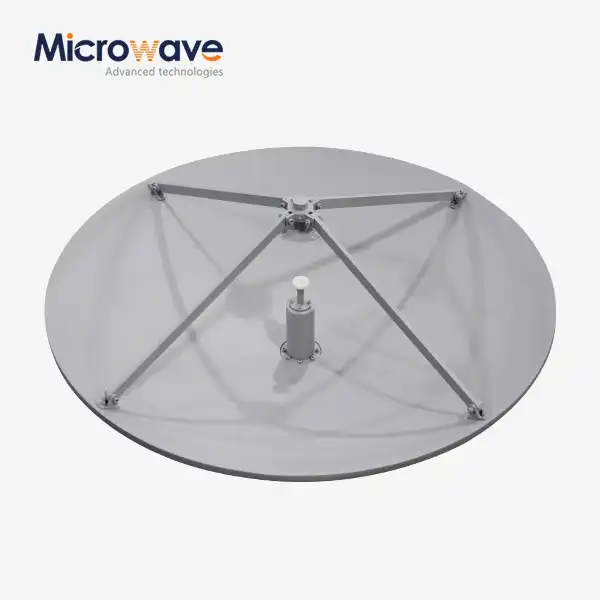 VIEW MORECassegrain Antenna
VIEW MORECassegrain Antenna




